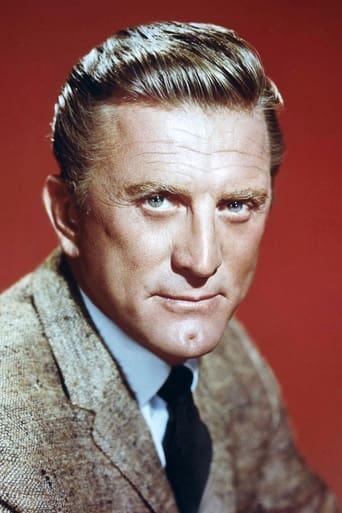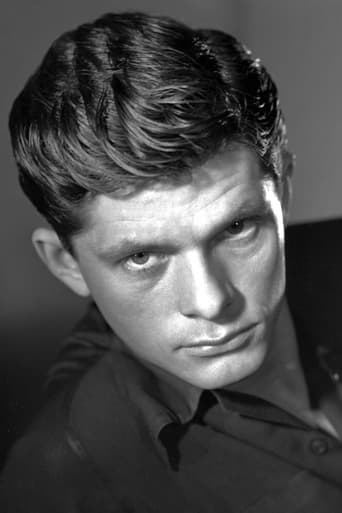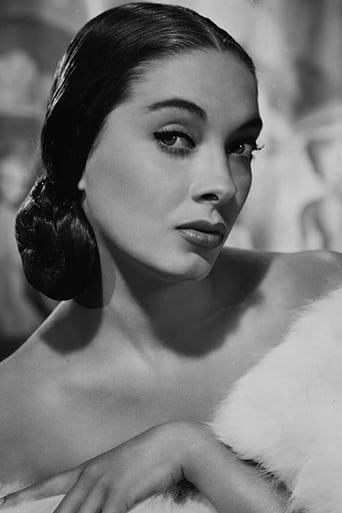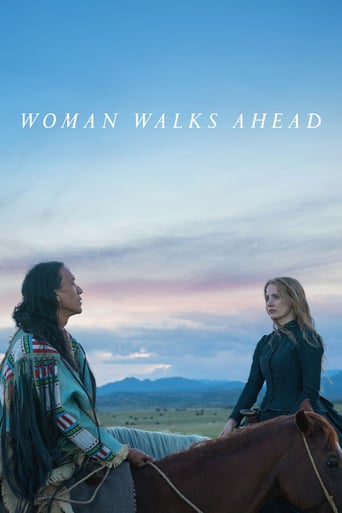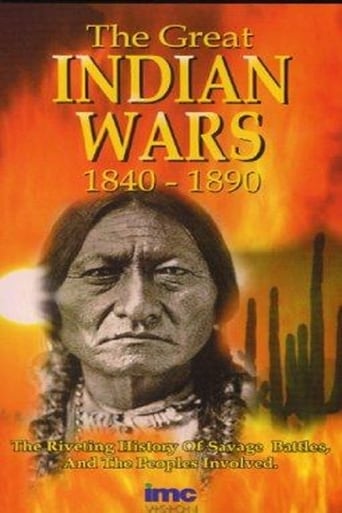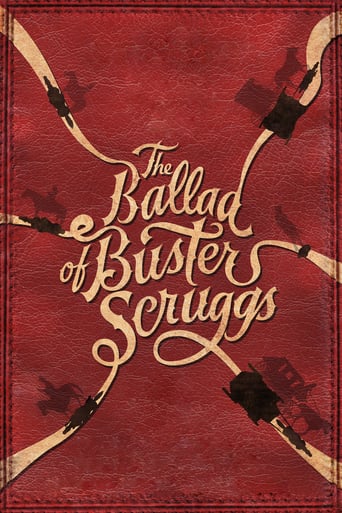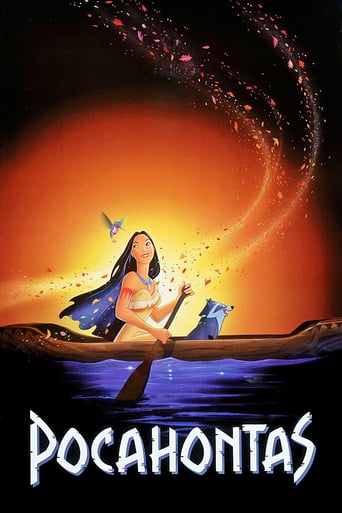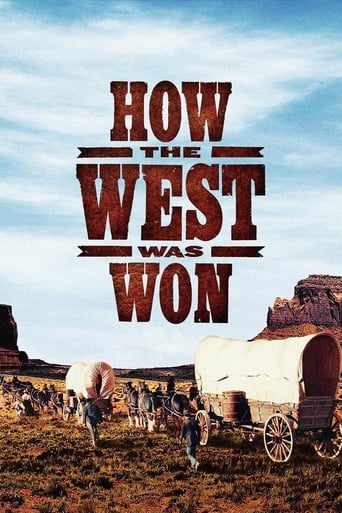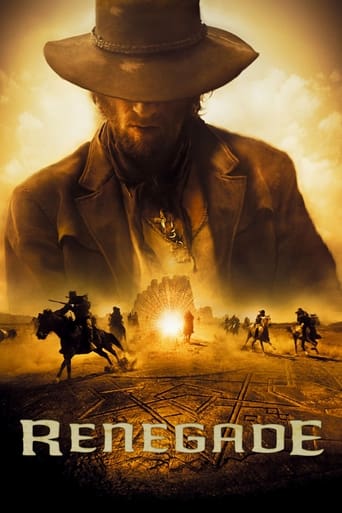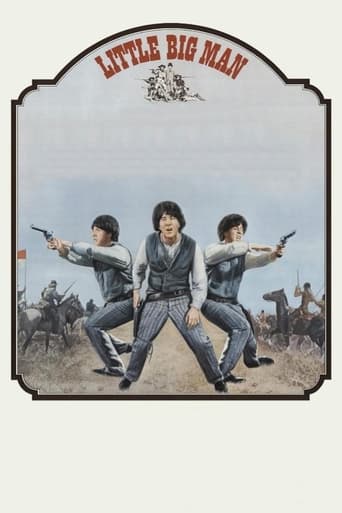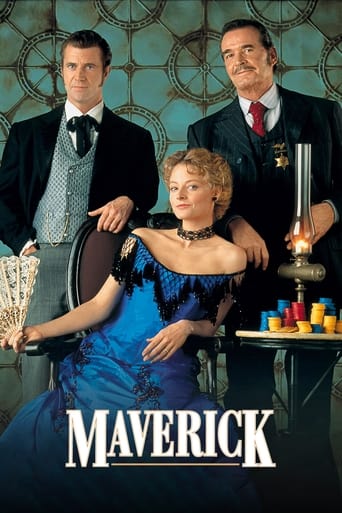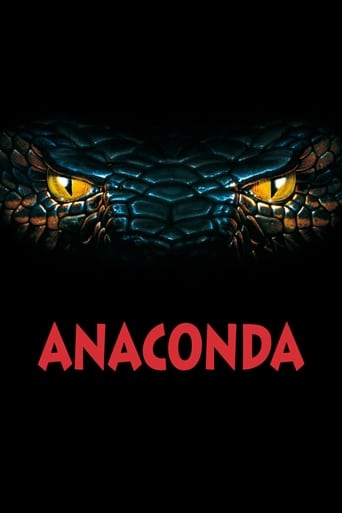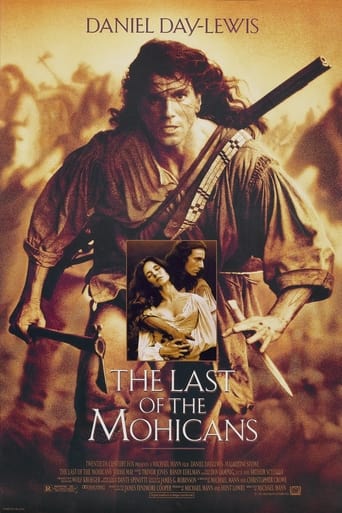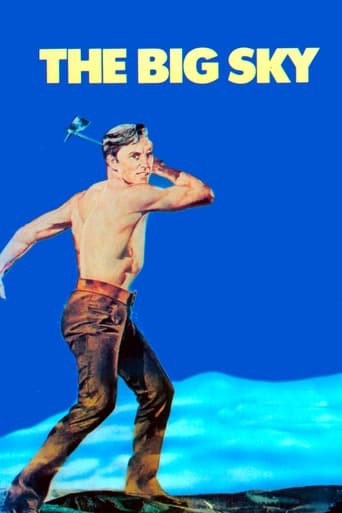
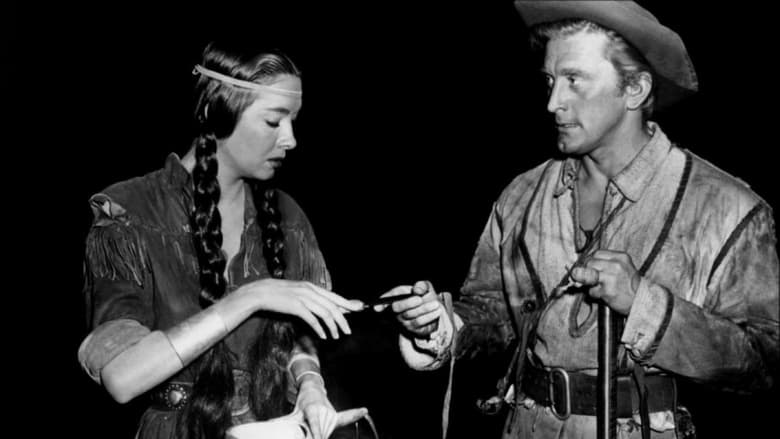
The Big Sky (1952)
Two tough Kentucky mountaineers join a trading expedition from St. Louis up the Missouri River to trade whisky for furs with the Blackfoot Indians. They soon discover that there is much more than the elements to contend with.
Watch Trailer
Cast


Similar titles
Reviews
Produced and directed by Howard Hawks, based on the novel of the same name by A.B. Guthrie Jr. with a screenplay by Dudley Nichols, this above average, yet somewhat unusual Western is almost documentary- like in its storytelling, which is narrated by one of its main characters, Zeb Calloway (Arthur Hunnicutt, who earned his only Oscar nomination (Supporting Actor) for his dual role.It's about a Lewis & Clark-like trip from St. Louis to Montana via the Missouri River in 1832. The other lead characters are played by Kirk Douglas and Dewey Martin. Supporting roles are played by: Elizabeth Threatt, in her only screen appearance as an Indian princess; Hank Worden, who also plays a Blackfoot Indian, Steven Geray and Buddy Baer, who plays crew members on the boat, and Jim Davis, perhaps best known as Jock Ewing on the TV series Dallas, who plays a rival fur trading company employee. Iron Eyes Cody, recognizable from the "Keep America Beautiful" ads, appears uncredited as a Blackfoot sub-chief.Outdoors-men Jim Deakins (Douglas) and Boone Cardell (Martin) meet on their way to Louisville and, becoming fast friends, decide to go on to St. Louis together to meet up with Boone's uncle Zeb Calloway (Hunnicutt). After a scrap with the dominant trading company chief, Sam Eggelston (Fred Graham, uncredited), both land in jail where they find Calloway, who has a plan to travel 2,000 miles up the Missouri river into Montana to trade with the Blackfoot Indians. Louis MacMasters (Paul Frees, also uncredited and not seen until late in this 2+ hour film), owner of the aforementioned trading company, has an outpost which isn't quite as far up river since he's yet to strike any kind of trade agreement with the Blackfoot. Since Calloway has found a dislocated Blackfoot princess, Teal Eye (Threatt), he plans to return her to her tribe, using her as leverage to strike just such an arrangement. Frenchy (Geray) is the money man who finances the trip, paying for the necessary oar & pole boat and its crew; Romaine (Baer) is his strongman who manages its over-sized rudder.Once on their journey, they meet a straggler Blackfoot hunter named Poordevil (Worden), who helps them per his interest in their whiskey, and then for fellow Blackfoot Teal Eye. Their journey is interrupted by MacMasters's hirelings, which include Streak (Davis), per a blonde lock in his dark hair, and a normally docile tribe of Indians. Of course, Cardell and then Deakins must fight through injuries along the way and the two become involved in a love triangle of sorts with their passenger Teal Eye. Both Blackfoot Indians become valuable members of the group and its mission. While Poordevil, Deakins, Cardell, and Calloway hunt for food and stave off attacks by MacMasters's company, Frenchy, Romaine, and the rest of the crew pole and paddle their boat upriver.Despite its length, I found this drama to be compelling enough to watch without yearning for its end. However, the quality of the print I saw on TCM was uneven; perhaps the best quality footage was that which was filmed on location in the Grand Teton National Park in Wyoming, whereas the studio scenes seemed to be shot with film of lesser quality.
From director Howard Hawks (Scarface, Bringing Up Baby, To Have and Have Not, Gentlemen Prefer Blondes), this is a film I found in the book 1001 Movies You Must See Before You Die, so I hoped it would live up to that designation. Basically set in 1832, frontiersman and Indian trader Jim Deakins (Kirk Douglas) and Boone Caudill (Dewey Martin) are initially hostile to each other, but soon become friends and head for the Missouri River to find Boone's uncle Zeb Calloway (Oscar nominated Arthur Hunnicutt). They find him in jail and are put in a cell with him, for brawling with fur traders of the Missouri River Company, 'Frenchy' Jourdonnais (Steven Geray) comes to bail him, and is talked into letting the other two out as well, and Jim and Boone join Zeb and Frenchy to travel 2000 miles on an expedition up the river to trade with the Blackfoot Indians, in competition with the Missouri Company. The posse have with them pretty Blackfoot woman Teal Eye (Elizabeth Threatt) who Zeb found several years ago after she escaped an enemy tribe, he plans to use her as a hostage, being the daughter of a chief. On the journey they encounter Poordevil (Hank Worden), another Blackfoot that Zeb knows, Teal Eye falls into the river and is rescued from rapids by Boone, but she is captured by Streak (Jim Davis) from a party of The Missouri Company, they try to set fire to the group's boat, but Frenchy wakes in time to stop severe damage. The expedition reaches Blackfeet and trading begins, Teal Eye tells a very disappointed Jim she loves him, like a brother, Boone is surprised to find later that she is married, but she makes him buy her so that her father is allowed to leave anytime he wishes, in the end when winter is approaching the men start the long journey back, but Boone decides to stay with Teal Eye. Also starring Buddy Baer as Romaine and Henri Letondal as La Badie. I agree with the critics that Dougles is good but perhaps a little too suave and intense, and I can see Hunnicutt was nominated an Oscar, the black and white film definitely has great landscape scenes and is pretty well acted, my only problem with it was that it was a bit slow for the majority, only the action sequences saved it being from being boring, I'm not sure it's the sort of film I'd see again, but it's not a bad western adventure. It was nominated the Oscar for Best Cinematography. Worth watching!
This is Howard Hawks' version of a boat trip to trade with Blackfeet Indians in 1840. It's a dangerous trip. Among the plentiful comic interludes there are scenes of action and sometimes death, though the deaths are never sentimentalized. It's the only movie I can think of in which the amputation of a man's finger is treated for laughs.A. B. Guthrie wrote the novel but it's a tragedy of sorts and Hawks doesn't stick to it closely. For good reason. Hawks liked to make movies with some commercial value and saw no reason to kill off characters the audience had grown to like. In the novel, young Boone Caudill (Martin) leaves the Midwest for Montana and winds up a savage, killing his friend Jim Deakins (Douglas), raping a woman on a visit back home, and trapping off most of the beaver. The last scene in the novel has Boone finding only one animal, an old female beaver with one leg in the line of steel traps, the flesh mostly gnawed off the bone, and he bashes her head in. Guthrie, a Pulitzer Prize winner, didn't pull any punches. The film's message is entirely different. It's business friendly. Free commerce is good for the Europeans and for the Blackfeet too. The movie, on the other hand, although long, is a rollicking adventure and the story of a friendship between two men, Martin and Douglas. It's probably Hawks' most homoerotic film. Martin in particular is extremely butch, with carefully coiffed hair and tight leather pants, with a couple of scenes in which he is shirtless and his robust pecs are on display. Of course, Hawks needn't have intended this subtext -- though it shows up in several of his flicks. Interviewed about recurring themes in his movies, he once told a reporter, "They attribute these things to me. It's all unconscious." However, the two friends are rivals for the affection of Teal Eye (Threatt), a former model who conformed to the type Hawks preferred, tall and outdoorsy. He seduced many of them. Easily. There would usually be an intimate dinner, and Hawks would ask something like, "Would you like to come up and spend a weekend at the ranch?" Threatt must have been quite a package. A major-league masochist, she once asked Douglas to whip her with his belt. Ever the gentleman, Douglas complied. According to his autobiography, Threatt said, "That wasn't hard enough. Really do it." "Are you sure?", asked Gentleman Kirk.The movie is full of Hawks' boyish ideas of honor and humor. There are several fist fights. In one, Douglas is beaned with a frying pan and sinks to the floor with his eyes askew. In another, a man cheats by holding a bullet pouch in his fist. They build a giant sling shot out of a tree to hurl a deer carcass downhill. Martin carries a trick rifle with two barrels. When they hold their enemies at gunpoint, Martin and Douglas taunt their captives. Not that the movie is sloppily constructed, though it has its gaps in believability. It's just that it's infused with Hawks. He copies liberally from his own previous works. (There's a word to describe that in music, quoting from your earlier tunes, but I forget what it is. Very annoying.) He even copies from "The Last of the Mohicans." The Indians aren't generic and they're treated relatively fairly, in the context of the period. The Crow really didn't cause any major problems for the Eastern settlers, and neither did the Blackfeet, who were almost wiped out by smallpox. The tribe after which the boat is named, the Mandan, were thoroughly extinguished by disease. They were all dead before the anthropologists or missionaries could reach them.At 140 minutes, it's pretty long but there's hardly ever a dull moment. The rousing and bombastic music is by Dmitri Tiompkin, moi drug. Arthur Hunnicut is the archetypal "wise old man." Hank Worden is Poordevil, the crazy Indian. Aside from the actual Indians involved, he's the only actor who really speaks the language with its torturous phonemes, but all his utterances are dubbed by a native speaker. When Poordevil talk, he's often filmed from behind so the dubbing isn't so obvious.A. B. Guthrie died at the age of 90 in Choteau, Montana, a quiet pleasant town, notable mainly for a spectacular view of the nearby Rocky Mountains and an on-going dinosaur dig a few miles out of town. A tranquil place.
One of my favorites along side "The Bridge On The River Kwai". AMC had found some missing footage which surprised me a good while back. Too bad it and other scenes had been clipped, and it would be good to see it all sometime. No one mentions the scene where the Mandan is tied to the bank on a rest stop. The Frenchmen dance to the accordion. And "smack!!" an arrow lands, without computer enhancement, in the side of the Frenchman La Badie's neck played by Henri Letondal That was great archery from Howard Hill I bet! Slow it down a watch in slow motion! All the actors were born for "The Big Sky". The Tiomkin music score was superb. A Howard Hawks/Kirk Douglas/ Arthur "Arkansas" Hunnicutt/ Dewey Martin/ Elizabeth Threat/ Jim Davis/ Steven Geray movie for the ages. Oh, and not to forget Hank Worden as Poordevil,..Eee? Eeh! Heh!,....Heh!....Heh!,..Eeh!! Ever see a raven fly backwards? It's in the AMC added clip. Great movie recommended for all ages! Nice to read all the comments here!


